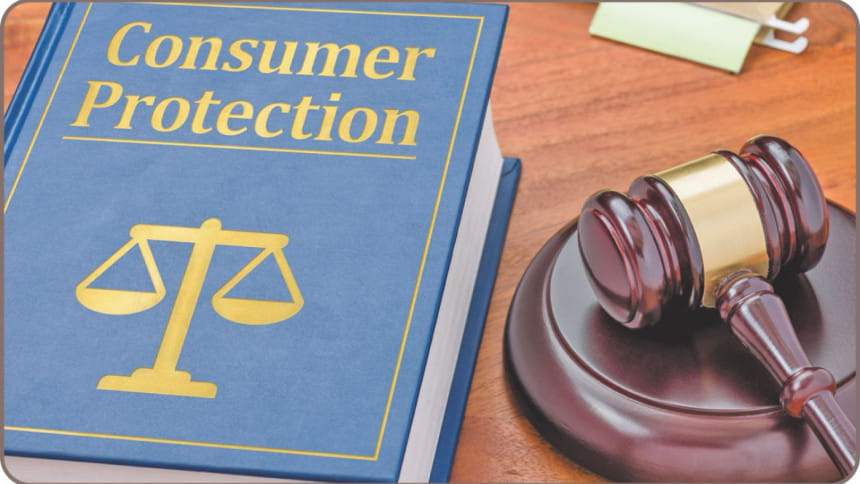Protecting consumer rights

For protecting the interest of consumers at large, consumer rights have gained significance over the years. Previously the principle of “Caveat Emptor” (let the buyer beware) had the tendency to exempt the seller from the liability. But over the decades, another competing internationally recognised principle named “Caveat Venditor” has been evolved which means 'Let the Seller Beware'.
It is quite difficult for the buyer to examine the goods every time before buying. For example, if anyone needs to buy a Cell phone, he/she cannot examine the product by him/herself before buying it except the virtual representation of such product. The buyer cannot check the nano-technologies by himself of such product rather the buyer will look at the virtual representation of that product. So, if the seller changes the internal materials, the product will not be the same and in such case, the buyer would be deceived and exploited from getting the claimed good. So the idea of Caveat Venditor is very clear in sense that the seller must be conscious and must bring the responsibility upon his head always. After the enactment of Consumer Rights Protection Act 2009 (CRPA), several organisations have been working for promoting the consumer protection in local level. Consumer Association of Bangladesh (CAB) has instituted many civil movements for establishing Consumer Protection Right.
According to Article 18 of the Constitution of Bangladesh, “The state shall regard the raising of the level of the nutrition and the improvement of public health as among its primary duties, and in particular shall adopt effective measures to prevent the consumption, except for medical purposes or for such other purposes as may be prescribed by law, of alcoholic, and other intoxicating drinks and of drugs which are injurious to health”. Moreover, Article 16 of the Constitution states about the adoption of effective measures for improving the public health.
Thus, the adoption of CRPA 2009 was very time-befitting, but it has also some drawbacks. Firstly, the swindled consumer cannot lodge any criminal suit against the vendor directly under this Act. The provision made a restrictive provision like a written complain has to be placed before the Director General of Directorate of National Consumer Rights Protection (DNCRP). Secondly, regarding Healthcare Affairs, if any person (patient) gets wrong treatment, being a consumer, he cannot file any complain even against that Medical Clinic under this Act. Medical negligence is an offence under Penal Code but the Act could extend its vicinity to greater perspectives to bind those negligent healthcare business institutions. Promulgation of the Act is very time-demanding, but the Act needs several amendments to extend its vicinity for the greater protection of the citizen (consumer). DNCRP is nowadays working very hard but they should not limit their actions against the Business institutions only, rather their actions needs to be on every possible areas where consumers' interests are involved.
The writer is a Student of LLM, Bangabandhu Sheikh Mujibur Rahman Maritime University.

 For all latest news, follow The Daily Star's Google News channel.
For all latest news, follow The Daily Star's Google News channel. 



Comments